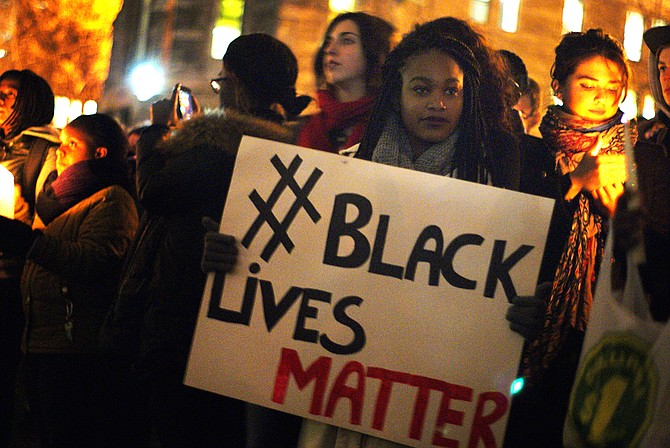The mere suggestion that not seeing my skin color should somehow make me feel comfortable is ignorant. I am proud of my race and my skin color. You don't see me? Why not? I don't want to be invisible. I want to be seen and appreciated for the black beauty that I am.
I don't want to be looked at and not seen. I think black, feel black, act black, everything black. If you can't see my color and respect it when it's so obvious, you're either trying not to give my color strength and power, or you're so uncomfortable with your thoughts about my color that it's just easier to disregard it all together.
What a person usually means when he or she proclaims that it's impossible to be racist because they have black friends or don't see color is that racists, in their mind, are so horrible—people burning crosses and brutally attacking those of another race. How could they be racist if they tolerate black folk beyond work or at their favorite eatery?
Here's a tip: Let's just assume you do have a real friendship with a black person. That doesn't mean you automatically don't feel prejudiced toward others. It happens every day. I've known white people who have close associations with many black people but revel in white privilege routinely and aren't aware of it.
I was never a slave on a plantation, picking cotton. But because my ancestors and family members did, it's who I am. I am a descendant of Africans who were stolen, brought over here in slave ships and treated like property. That's my history. I own it. I recognize that my race is the reason why I'm profiled and mistreated. I don't like it. I wouldn't write that story for myself or my people. But it's true, and I acknowledge it.
White folk must do the same for their history. That doesn't mean you have to be a slave owner to reap the benefits of those in your family who did. Just like my history shows up in my skin tone, so does yours.
Stop trying to erase the past. Embrace it. Acknowledge the shame, the rage, the guilt, the embarrassment. The idea that separating yourself from the blood line that created oppression for an entire race of people will somehow free your soul of ownership is ridiculous. Many white people want to talk about moving on and reconciling, but they are still unable to speak respectfully and with dignity to black subordinates. There is still a sense of entitlement when it comes to jobs, seating at restaurants, being pulled over by cops—hell, even when it comes to speaking about the black experience in this country.
When a white colleague asked me what needs to happen at this point for us to "move on" beyond the history that creates racial tension, my answer was clear: Respect our struggle, and accept that your people created and thrive in this oppression. Then, start calling out your friends who use the n-word freely in private circles. Stop acting like you don't see it and hold them accountable for it.
Trying to conceal the facts, disassociate from the evil or excuse the connection to it doesn't eliminate history. It's those people who are either ignorant or racist who need to be addressed, not black people.
We are clear. We know this struggle. And contrary to popular belief, we also know how to fix it. We don't need a white savior, but your people do. It's the only way real reconciliation can occur. It merely displays the lack of humanity that got us here in the first place.
If you use statements like "I don't see skin color" or "I have black friends" but can't see the underlined racial bias, at least acknowledge the lack of humanity.
Funmi "Queen" Franklin is a word lover, poet, a truth yeller and community activist. She is the founder of an organization that promotes self-love, awareness and sisterhood. Plus, she has a wicked addition to Lemonheads.




Comments
Use the comment form below to begin a discussion about this content.
comments powered by Disqus